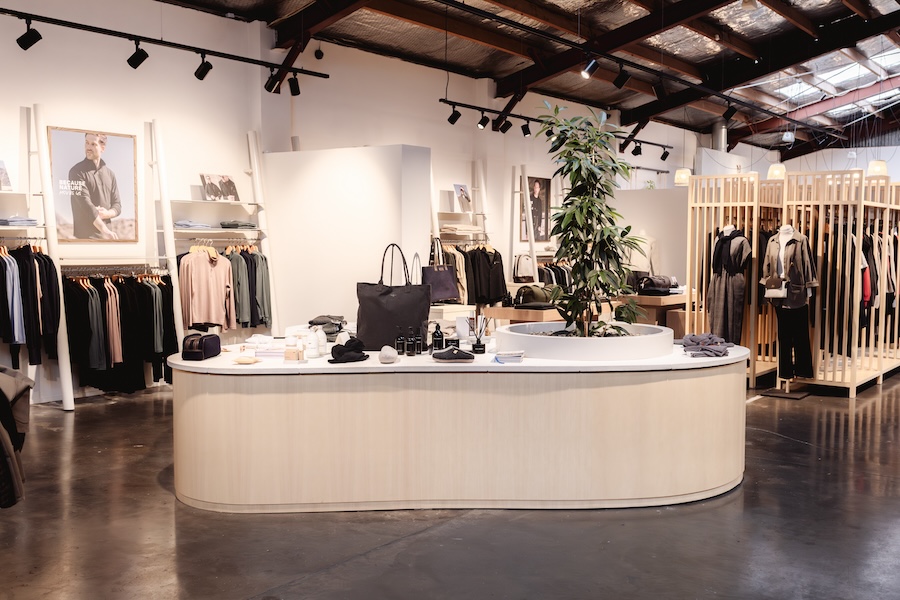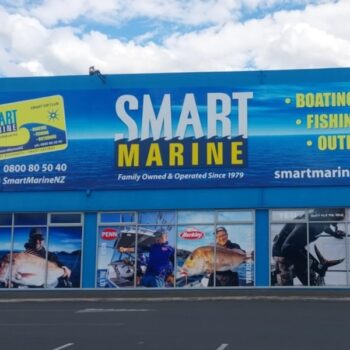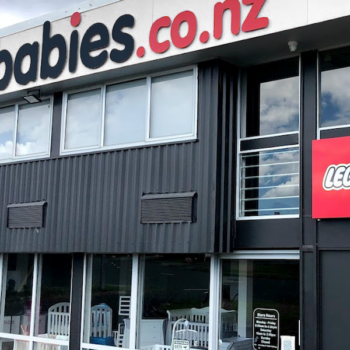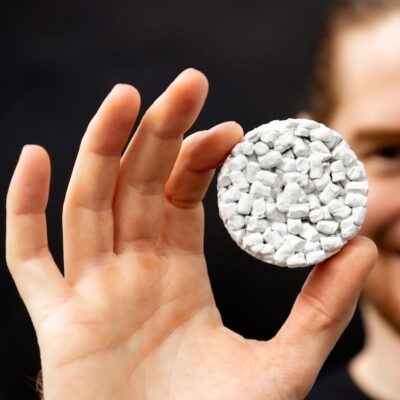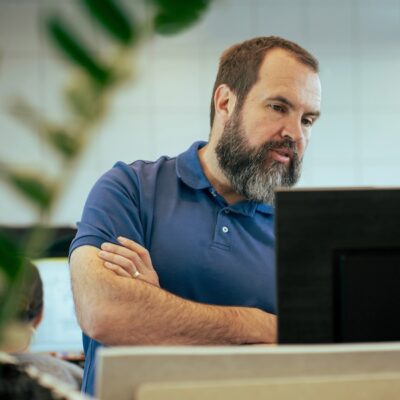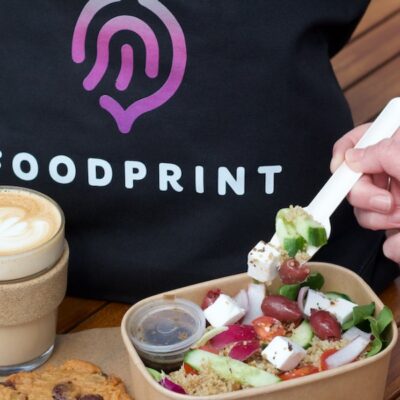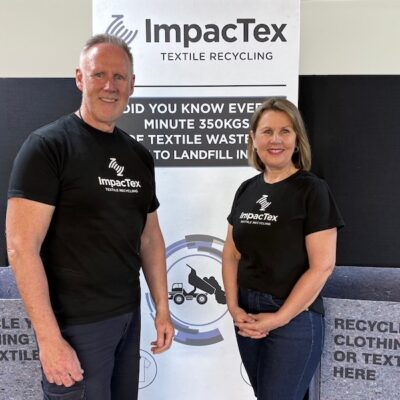NZ fashion label aims to cut out textile waste by 100 percent
Pictured above: Untouched World’s Roydvale Avenue store in Christchurch.
A 30-year-old New Zealand business with unique credentials in global fashion is one step away from phasing out textile waste from its operations.
Untouched World was started by Peri Drysdale in Christchurch in 1995. It makes clothing for men and women with an emphasis on quality and sustainability. It is the first and only fashion label to be recognised by the United Nations for sustainability.
Due to ‘fast fashion’ that is cheap and often low quality, the volume of clothing being sent to landfills is increasing rapidly in New Zealand. Untouched World is one of a number of local fashion labels working hard to change that.
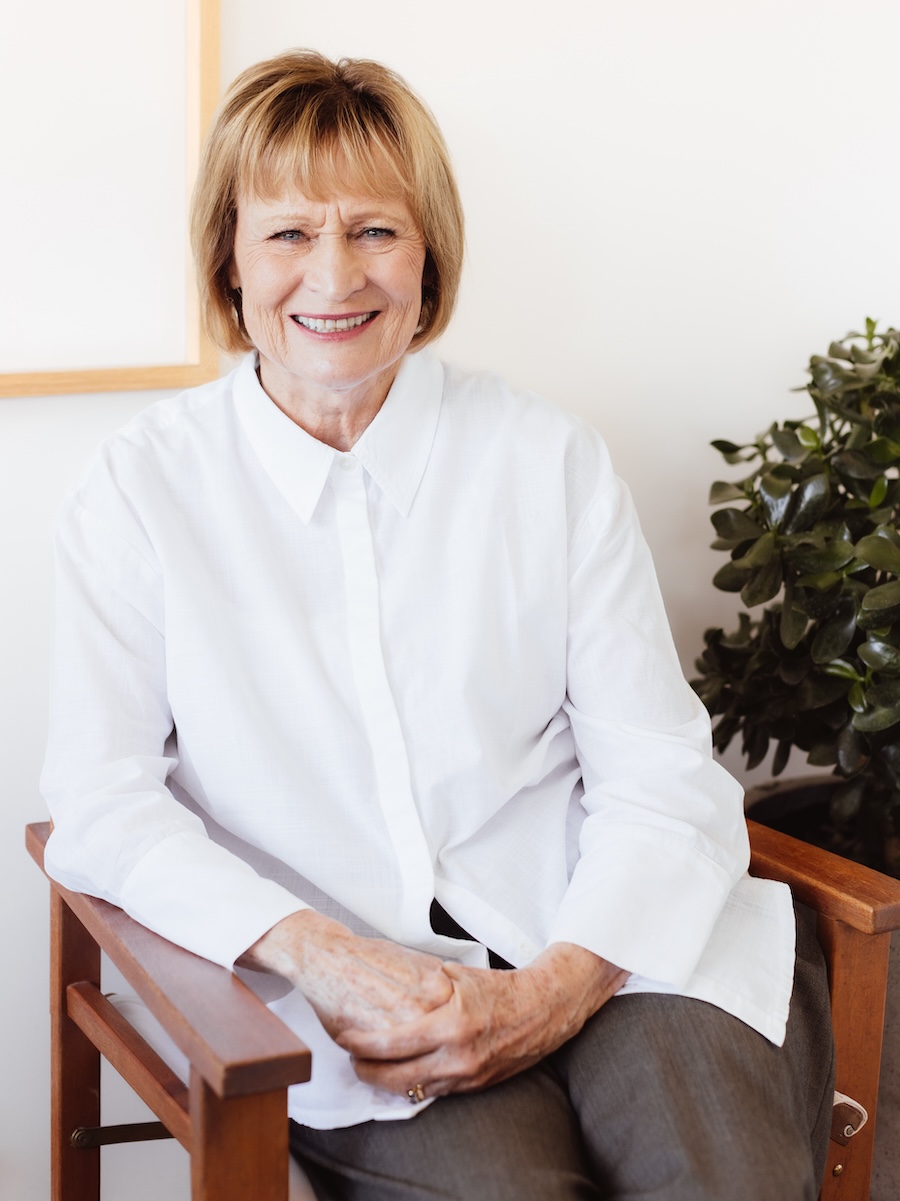
“Our work around reducing waste has been a huge focus for us over the last couple of years. A large part of this has been around textile waste reduction,” says Development Manager Fiona Bretherton.
Last year Untouched World diverted 99 percent of its textile waste (more than one tonne) from landfill. It was recycled into other products like hats, scarves and its award-winning Rubbish Socks. The socks are made from recycled knit waste blended with 50 percent virgin merino fibre. The recycling process is completely water and dye-free. This innovation was recognised when Rubbish Socks won the 2024 Mindful Fashion Circular Business Innovation Award.
Other textile waste is sent to recyclers to be turned into insulation. Some is made into promotional signage by Impactex for Untouched World stores in Auckland, Wellington, Christchurch and Wanaka.
“Our goal is zero textile waste by the end of 2025,” says Fiona.
The last part may be the most challenging. Currently knitwear production relies on a nylon draw thread which can’t be recycled or reused. The team is about to move to a draw thread made from recycled nylon, but it will still go to landfill at the end of its use.
“We’re focusing on developing a natural fibre alternative that can either be recycled or composted.”
Untouched World considers the full lifecycle of the materials it uses, including ZQ certified merino, organic cotton and Ecopossum that will naturally return to the earth and break down without contributing to landfill.
“Wool takes as little as three to four months to decompose, while organic cotton can take up to six months to decompose. That’s a mere heartbeat in time when compared to synthetic fabrics, which can take anywhere from 30 to 500 years to decompose.”
Fiona says 94 percent of Untouched World’s garments are produced locally in Christchurch. The rest are produced in Vietnam.
“By making most of our clothes here and sourcing many of our fibres locally too, we reject the disconnected nature of fast fashion and reduce our footprint.”
From day one the business has operated a repair service for its garments.
“We want our garments to last, to be worn for years, and passed down through generations. Our customers love that and sometimes a simple repair can extend the life of a favourite piece by years.”
That sustainability ethos extends to all areas of the business.
“We look at every aspect of our business with sustainability in mind. That means considering the total life impact of what we produce, from the sustainably grown fibres we use, right through to how our team dispose of their banana skins after lunch.”
Last year the business diverted 44 percent of its general waste from landfill through several new and ongoing initiatives. One change was introducing transparent bin liners to encourage staff to think twice before throwing things out. It sounds simple but it made a real difference, says Fiona.

Other initiatives included:
- Locking bins outside business hours to curb unauthorised dumping.
- Launching targeted recycling education, including new induction materials.
- Ensuring clear signage and accessibility of recycling stations.
- Moving to cloud-based systems to reduce paper use.
- Request minimal packaging with goods being purchased.
- Using garment bags made from recycled plastic and designed to be reused multiple times.
Environmental data is tracked using a platform called Sustainability 360, created by a local Christchurch company dedicated to keeping tracking simple, clear and accountable.
“Each month we measure our water, energy and gas usage, along with any waste. We then collate and analyse the data, to see where we’re reaching our targets, and where we could be doing better. This keeps us accountable and allows us to drive meaningful, positive change across the business.
“We’ve come a long way since we started tracking this data in 2010, but know there’s always more that can be done.”
Untouched World is part of the Sustainable Business Network.

